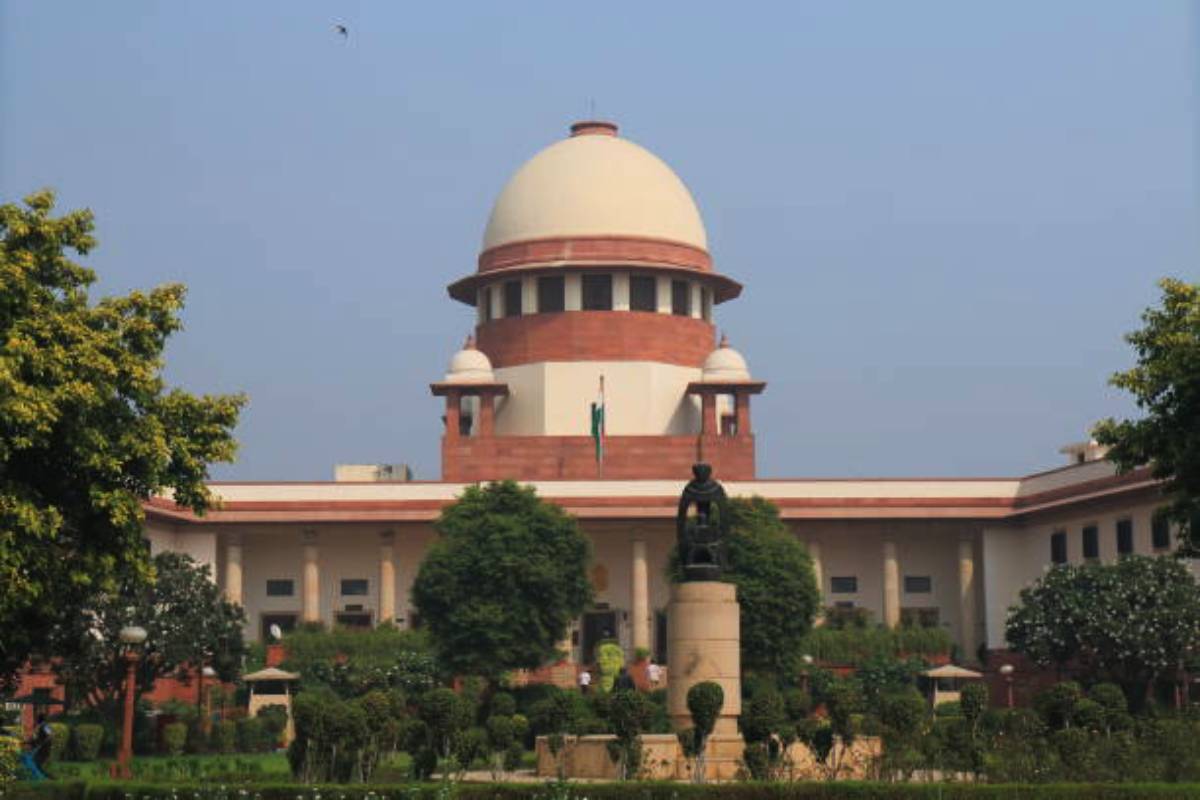India’s Got Latent: SC issues notice on YouTuber Ashish Chanchlani’s plea against FIRs
SC issues notice on YouTuber Ashish Chanchlani’s plea to quash or transfer FIR in India’s Got Latent case; tagged with Ranveer Allahabadia’s petition.
The Supreme Court on Friday said it would list on October 12, before a seven-judge constitution bench, petitions challenging the introduction of various stringent provisions in the Prevention of Money Laundering Act, 2002, as a money bill – part of the Finance Act 2018.

File Photo
The Supreme Court on Friday said it would list on October 12, before a seven-judge constitution bench, petitions challenging the introduction of various stringent provisions in the Prevention of Money Laundering Act, 2002, as a money bill – part of the Finance Act 2018.
The Chief Justice D.Y. Chandrachud heading a bench also comprising Justice J.B. Pardiwala and Justice Manoj Misra said that the hearing by seven-judge bench on the question whether amendment to PMLA could have been introduced as a part of the money bill would be limited to issues of directions – appointment of nodal lawyers – one each from the contesting sides -, preparation of common compilation to be relied upon by the arguing lawyers on both the sides in the course of the hearing and other aspects as per the SoPs.
Advertisement
It is only after the preparation of the common compilation dealing with various aspects of the challenge including judgments that will be cited in the course of the actual hearing, that the date of the hearing will be set.
Advertisement
A three-judge bench of the top court by its July 27, 2022, judgment while upholding the validity of various stringent provisions of the Prevention of Money Laundering Act empowering the Enforcement Directorate (ED) to arrest, provisionally attach properties suspected to be the proceeds of crime, had said that the challenge whether these provisions could have been introduced as a part of the money bill – the Finance Act 2018, will be decided by a larger 7-judge bench.
“The question as to whether some of the amendments to the Prevention of Money-laundering Act, 2002 could not have been enacted by the Parliament by way of a Finance Act has not been examined in this judgment. The same is left open for being examined along with or after the decision of the Larger Bench (seven Judges) of this Court in the case of Rojer Mathew”, the judgment pronounced on July 27, 2022, had said.
The July 27, 2022, judgment upholding the stringent PMLA provision was by a bench of Justice A.M. Khanwilkar, Justice Dinesh Maheshwari (both since retired) and Justice C.T. Ravikumar.
The Chief Justice Chandrachud today said that a number of matters, some pending for a decade or two, to be adjudicated by a seven-judge and nine-judge benches would be taken up for hearing.
In a related issue, a three-judge bench that will be headed by Justice Sanjay Kishan Kaull will take up for hearing on October 18, two aspects arising from July 27, 2022, judgment relating to denial of ECIR by the Directorate of Enforcement while arresting an accused and presumption of innocence of an accused till convicted.
A top court bench comprising Chief Justice N.V. Ramana, Justice Dinesh Maheshwari (both since retired) and Justice C.T. Ravikumar had on August 25, 2022, framed these two aspects on petitions seeking a relook at the July 27, 2022, judgment..
The Supreme Court had by its July 27, judgment while upholding the validity of various stringent provisions of the Prevention of Money Laundering Act had said that ED is not bound to supply a copy of ECIR at the time of detaining an accused in a money laundering case.
The top court had said that the amended provisions of PMLA Act does not suffer from the vice of arbitrariness and unconstitutionality.
Observing that money laundering is an offense against the sovereignty and integrity of the country, the top court had said, “The classification or grouping of offences (including minor compoundable offences) for treating the same as relevant for constituting an offence of money laundering is a matter of legislative policy… the Parliament in its wisdom having perceived the cumulative effect of the process or activity concerning the proceeds of crime generated from such criminal activities as being likely to pose threat to the economic stability, sovereignty and integrity of the country and thus, grouped them together for reckoning it as an offence of money laundering, …”
The judgment had said that it was a “matter of legislative policy. It is not open to the Court to have a second guess at such a policy.”
Advertisement